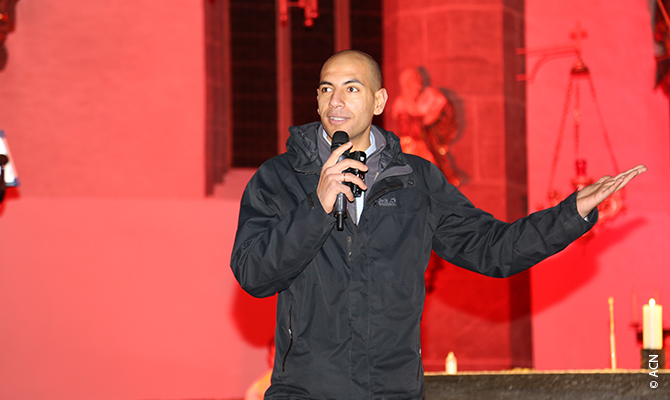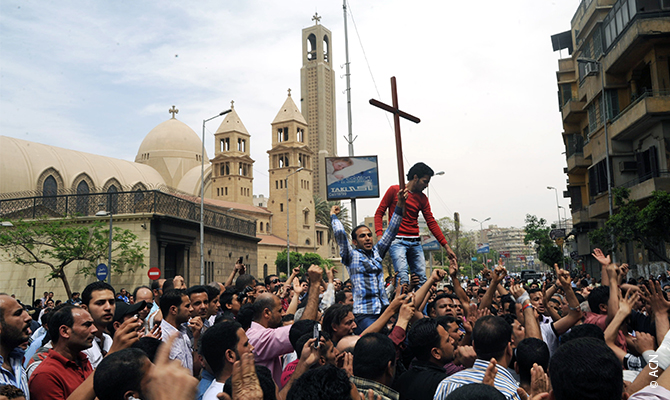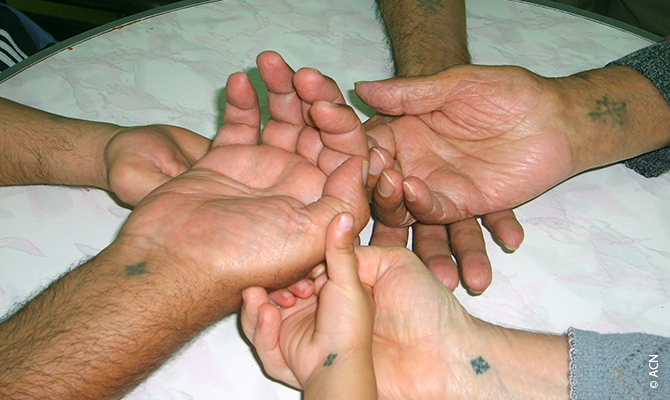Egypt: “I feel pity for the perpetrators”
A survivor looks back ten years after the attack on Coptic Christians
Ten years ago on New Year’s Eve, the life of Coptic Orthodox Christian Kiro Khalil, then 20 years old, was “turned upside down”, as he describes it himself. The expression does little to convey just how horrific the experience was that the young man went through. He survived an attack that was targeted expressly at Christians. Three of his closest family members died.

Following the attack, Khalil was still subjected to discrimination and even death threats. He was forced to leave his homeland and seek refuge in Germany – however, along the way he also found happiness: he just got married. Florian Ripka, national director of the charity Aid to the Church in Need (ACN) in Munich, Germany, spoke with Khalil about the power of reconciliation, the love for one’s enemies and a faith that withstands persecution.
Mr Khalil, you survived an attack on a church. When was this and what happened?
I lost my closest family members during the attack on the Church of St. Mark and St. Peter (Al-Qidissine Church) in my native city of Alexandria. It happened on New Year’s Eve 2010/2011. We were in church to thank God for the year that was about to end. As we left after midnight, a car bomb exploded across from the church. Twenty-four people died and several hundred more were injured. Among those who died were my mother, my sister and one of my aunts. My other sister, Marina, was severely wounded. She had to be operated 33 times.
You lost your closest family members. How do you deal with the grief and also the rage you must feel against the attackers?
Since I was a child I have been the object of hate and discrimination because I am Christian. I was often verbally harassed at school, just because my name is Kiro, which is a traditional Christian name. My mother taught us children to love our fellow human beings no matter what they did to us. “Love thy neighbour as thyself”: my mother implanted this commandment of Jesus deeply within us. After the attack, it helped me tremendously in dealing with my grief.

Ultimately your faith was the reason why you and your family fell victim to this attack. Did you ever doubt God?
Absolutely not. Four thousand people had gathered in the church for the New Year’s Eve service. Of these people, three of my family members were chosen to be martyrs. And even if it sounds strange: I see it as a special talent to feel this way instead of yielding to despair or asking, “Was God unjust because He allowed this to happen?”
It was not possible to identify the perpetrators of the attack or their backers. What do you think about the assassins?
I feel pity for the perpetrators. The extremists live under extreme pressure. They believe that they must carry out violence against those of different faiths in order to please God. These people have blood on their hands. How can a person live with that burden of guilt? I imagine that they are suffering just as greatly from the after-effects of this attack as I am.

You are living in Germany today. Do you feel as though you have the freedom to live your faith here or what do you believe are the challenges that the faithful face here?
In Germany, there is a lot of freedom. This is often taken as a matter of course. There are times when it seems as though the faith was gradually dying off. It is often the case that the Church is particularly vibrant in those places that are experiencing persecution. In Egypt, Christians are dying for the right to live their faith. Here in Germany, the churches are being closed or converted into museums. That makes me sad.


